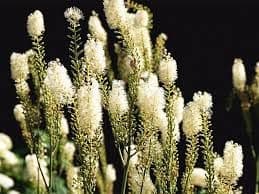Vaginal Dryness
What is Vaginal Dryness?
Vaginal dryness occurs when the natural moisture that lubricates the vaginal walls decreases, resulting in dryness, irritation, and discomfort. It can significantly impact sexual health, intimacy, and quality of life, but it’s a condition that can be managed with the right approach. Vaginal dryness is often linked to hormonal changes, particularly a drop in estrogen levels, but it can also be triggered by other factors.
Symptoms of Vaginal Dryness
Recognizing the symptoms of vaginal dryness is essential for seeking timely treatment and relief. Common signs of vaginal dryness include:
- Itching or irritation: A persistent feeling of dryness, burning, or itching in the vaginal area.
- Pain during intercourse: Known as dyspareunia, vaginal dryness can make intercourse painful or uncomfortable due to lack of lubrication.
- Increased urinary frequency: Some women may experience a greater need to urinate or even urinary tract infections (UTIs) as a result of dryness.
- Vaginal tightness: The tissues may become less elastic, leading to a feeling of tightness or discomfort.
- Light bleeding or spotting: Due to friction during intercourse, dryness can sometimes cause minor bleeding.
These symptoms can range from mild to severe and may worsen over time if left untreated.
What Causes Vaginal Dryness?
Vaginal dryness can result from various factors, though hormonal changes are the most common cause. Some primary contributors include:
- Hormonal changes: A decline in estrogen levels is the leading cause of vaginal dryness, especially during menopause, perimenopause, or postpartum. Estrogen helps maintain vaginal lubrication, elasticity, and acidity, which protect against infection and irritation. When estrogen drops, these functions diminish, leading to dryness.
- Breastfeeding: The hormone prolactin, which stimulates milk production, can suppress estrogen levels, leading to temporary vaginal dryness.
- Certain medications: Antihistamines, decongestants, and some antidepressants can reduce moisture levels in the body, including in the vaginal tissues.
- Stress: High levels of stress can interfere with hormone balance, leading to a decrease in estrogen and vaginal lubrication.
- Birth control: Some hormonal contraceptives can cause lower estrogen levels, leading to dryness for certain women.
- Chemotherapy or radiation: Cancer treatments can lower estrogen production, leading to vaginal dryness as a side effect.
The Connection Between Hormonal Health and Vaginal Dryness
Hormonal health plays a critical role in vaginal lubrication. Estrogen is the key hormone responsible for maintaining the thickness, elasticity, and moisture of the vaginal tissues. During menopause or perimenopause, estrogen levels naturally decline, which often leads to vaginal dryness. Similarly, breastfeeding women and those who’ve had hysterectomies or oophorectomies (removal of ovaries) may experience lower estrogen levels, resulting in dryness.
Additionally, conditions such as polycystic ovary syndrome (PCOS) or thyroid imbalances can disrupt hormonal health and contribute to vaginal dryness. Addressing hormonal imbalances through lifestyle changes, medical treatment, or natural supplements may help improve symptoms.
Natural and Herbal Remedies for Managing Vaginal Dryness
In addition to medical treatments like hormone replacement therapy (HRT) or over-the-counter lubricants, there are several natural management strategies that can help alleviate vaginal dryness and restore comfort.
1. Dietary Adjustments
- Stay hydrated: Proper hydration is essential for overall bodily functions, including vaginal moisture. Aim to drink plenty of water throughout the day.
- Healthy fats: Incorporating more healthy fats from sources like avocados, nuts, seeds, and fatty fish (rich in omega-3 fatty acids) can support hormone production and help maintain vaginal lubrication.
- Phytoestrogens: Foods rich in phytoestrogens, such as soy, flaxseeds, and legumes, may help mimic estrogen in the body and alleviate symptoms of vaginal dryness for some women.
2. Herbal Remedies
Several herbs are known for their hormone-balancing properties and can support vaginal health by promoting natural lubrication:
- Black Cohosh: Commonly used for menopausal symptoms, black cohosh can help balance estrogen levels and relieve vaginal dryness.
- Red Clover: Rich in phytoestrogens, red clover may help alleviate menopausal symptoms like vaginal dryness.
- Aloe Vera: Aloe vera gel, when used topically, can provide soothing relief for vaginal dryness and irritation.
- Fenugreek: This herb is believed to support estrogen production and can be consumed as a supplement or tea to promote vaginal health.
3. Supplements and Nutrients
- Vitamin E: Topical and oral vitamin E can help improve skin hydration, including the vaginal tissues, and may reduce dryness.
- Omega-3 fatty acids: These healthy fats support hormonal balance and may help maintain the moisture of vaginal tissues.
- Probiotics: A healthy gut microbiome is linked to overall vaginal health. Probiotics help maintain a healthy balance of bacteria in the vagina, reducing the risk of infections and irritation that can worsen dryness.
Managing Vaginal Dryness: Lifestyle and Medical Treatments
There are also several practical steps and medical treatments to help manage vaginal dryness effectively:
- Vaginal moisturizers: Unlike lubricants, which are used during sexual activity, vaginal moisturizers are designed to maintain vaginal hydration on a daily basis.
- Lubricants: Water-based lubricants can provide temporary relief from dryness, especially during intercourse. Avoid scented or chemical-laden lubricants, as they can cause further irritation.
- Hormone therapy: Low-dose estrogen therapy, such as vaginal creams, rings, or tablets, can help restore moisture and relieve symptoms of vaginal dryness. Hormone replacement therapy (HRT) may be considered for postmenopausal women.
- Regular sexual activity: Engaging in regular sexual activity or self-stimulation can increase blood flow to the vaginal tissues, helping to maintain natural lubrication.
- Avoid irritants: Stay away from harsh soaps, douches, or scented products that can disrupt the natural balance of the vaginal tissues.
Takeaway: Addressing Vaginal Dryness Naturally
Vaginal dryness is a common issue that can significantly affect a woman’s comfort and quality of life, but with the right strategies, it can be effectively managed. Whether through dietary adjustments, natural herbal remedies like black cohosh or red clover, or using vaginal moisturizers and lubricants, there are numerous ways to alleviate symptoms and restore comfort.
If you experience persistent vaginal dryness, especially if it’s impacting your quality of life, it’s essential to consult with a healthcare provider to explore both medical and natural treatment options tailored to your specific needs.




